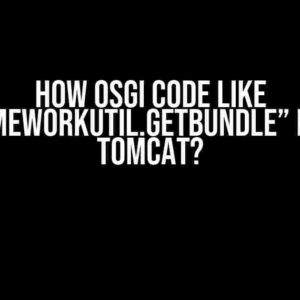Are you tired of encountering the infamous NullPointerException when working with the PaymentsSetupWizardAccountChangeIntentOperation.onHandleIntent method? Do you want to learn the secrets of handling this error like a pro? Look no further! In this comprehensive guide, we’ll dive into the world of NullPointerExceptions and provide you with step-by-step instructions on how to tackle them in the context of PaymentsSetupWizardAccountChangeIntentOperation.onHandleIntent.
- What is a NullPointerException?
- Common Scenarios Leading to NullPointerException in PaymentsSetupWizardAccountChangeIntentOperation.onHandleIntent
- How to Handle NullPointerException in PaymentsSetupWizardAccountChangeIntentOperation.onHandleIntent
- Best Practices for Avoiding NullPointerExceptions
- Conclusion
What is a NullPointerException?
A NullPointerException (NPE) is a runtime exception that occurs when your program attempts to access or manipulate a null object reference. In other words, it happens when you try to use an object that hasn’t been initialized or instantiated. This error can be frustrating, but don’t worry, we’ve got you covered!
Why does NullPointerException occur in PaymentsSetupWizardAccountChangeIntentOperation.onHandleIntent?
The PaymentsSetupWizardAccountChangeIntentOperation.onHandleIntent method is part of the Android architecture components, specifically designed for handling intent operations. When this method is called, it expects a valid intent object as a parameter. However, if the intent object is null, a NullPointerException will be thrown.
Common Scenarios Leading to NullPointerException in PaymentsSetupWizardAccountChangeIntentOperation.onHandleIntent
Before we dive into the solutions, let’s explore some common scenarios that might lead to a NullPointerException in PaymentsSetupWizardAccountChangeIntentOperation.onHandleIntent:
- Illegal or malformed intent data
- Incorrectly initialized or null intent object
- Missing or incorrect permissions
- Android API level compatibility issues
How to Handle NullPointerException in PaymentsSetupWizardAccountChangeIntentOperation.onHandleIntent
Now that we’ve identified the potential causes, let’s explore the different approaches to handling NullPointerExceptions in PaymentsSetupWizardAccountChangeIntentOperation.onHandleIntent:
1. Check for Null Intent Object
One of the most straightforward ways to avoid a NullPointerException is to check if the intent object is null before calling the onHandleIntent method:
Intent intent = getIntent();
if (intent != null) {
PaymentsSetupWizardAccountChangeIntentOperation operation = new PaymentsSetupWizardAccountChangeIntentOperation();
operation.onHandleIntent(intent);
} else {
Log.e("Error", "Intent object is null");
}
2. Use Optional Intent
Another approach is to use the Optional class to handle the possibility of a null intent object:
Optional optionalIntent = Optional.ofNullable(getIntent());
if (optionalIntent.isPresent()) {
PaymentsSetupWizardAccountChangeIntentOperation operation = new PaymentsSetupWizardAccountChangeIntentOperation();
operation.onHandleIntent(optionalIntent.get());
} else {
Log.e("Error", "Intent object is null");
}
3. Initialize Intent Object Properly
Make sure to initialize the intent object correctly, using the correct constructor and parameters:
Intent intent = new Intent("com.example.ACTION_PAYMENTS_SETUP_WIZARD");
intent.putExtra("extra_key", "extra_value");
PaymentsSetupWizardAccountChangeIntentOperation operation = new PaymentsSetupWizardAccountChangeIntentOperation();
operation.onHandleIntent(intent);
4. Use Try-Catch Blocks
You can also use try-catch blocks to handle the NullPointerException:
try {
Intent intent = getIntent();
PaymentsSetupWizardAccountChangeIntentOperation operation = new PaymentsSetupWizardAccountChangeIntentOperation();
operation.onHandleIntent(intent);
} catch (NullPointerException e) {
Log.e("Error", "NullPointerException occurred", e);
}
5. Verify Android API Level Compatibility
Ensure that your app is compatible with the minimum Android API level required for the PaymentsSetupWizardAccountChangeIntentOperation class:
if (Build.VERSION.SDK_INT >= Build.VERSION_CODES.O) {
// API level 26 (Android 8.0) or higher
PaymentsSetupWizardAccountChangeIntentOperation operation = new PaymentsSetupWizardAccountChangeIntentOperation();
operation.onHandleIntent(intent);
} else {
Log.e("Error", "API level not compatible");
}
Best Practices for Avoiding NullPointerExceptions
To minimize the risk of NullPointerExceptions in your app, follow these best practices:
- Initialize objects before using them
- Check for null references before accessing or manipulating objects
- Use Optional classes or try-catch blocks to handle potential null references
- Verify Android API level compatibility
- Test your app thoroughly to identify and fix NullPointerExceptions
Conclusion
In conclusion, handling NullPointerExceptions in PaymentsSetupWizardAccountChangeIntentOperation.onHandleIntent requires a combination of proper intent object initialization, null checks, and try-catch blocks. By following the instructions and best practices outlined in this guide, you’ll be well-equipped to tackle NullPointerExceptions and provide a seamless user experience in your Android app.
| Error | Solution |
|---|---|
| NullPointerException | Check for null intent object, use Optional intent, initialize intent object properly, use try-catch blocks, and verify Android API level compatibility |
We hope this comprehensive guide has helped you master the art of handling NullPointerExceptions in PaymentsSetupWizardAccountChangeIntentOperation.onHandleIntent. Remember to stay vigilant and follow best practices to ensure a robust and error-free Android app.
Here are 5 questions and answers about “NullPointerException PaymentsSetupWizardAccountChangeIntentOperation.onHandleIntent” in a creative voice and tone:
Frequently Asked Questions
Get the lowdown on NullPointerException PaymentsSetupWizardAccountChangeIntentOperation.onHandleIntent and blast those errors into oblivion!
What is a NullPointerException in PaymentsSetupWizardAccountChangeIntentOperation.onHandleIntent?
A NullPointerException occurs when the PaymentsSetupWizardAccountChangeIntentOperation.onHandleIntent method tries to access an object that doesn’t exist or is null. It’s like trying to find a needle in a haystack, but the haystack is empty! This error usually indicates a programming mistake, so don’t worry, you can fix it with a little detective work.
What causes a NullPointerException in PaymentsSetupWizardAccountChangeIntentOperation.onHandleIntent?
The main culprit behind a NullPointerException in PaymentsSetupWizardAccountChangeIntentOperation.onHandleIntent is usually a null object reference. This can happen when you don’t initialize an object before using it, or when you pass a null value to a method that expects a valid object. Other causes might include incorrect SDK versions, incorrect AndroidManifest.xml configurations, or even typos in your code! So, make sure to double-check your code and configurations to avoid this pesky error.
How do I fix a NullPointerException in PaymentsSetupWizardAccountChangeIntentOperation.onHandleIntent?
To fix a NullPointerException in PaymentsSetupWizardAccountChangeIntentOperation.onHandleIntent, you need to identify the null object reference and fix it. This might involve initializing objects, checking for null values before using them, or even reconfiguring your SDK versions and AndroidManifest.xml file. Use debugging tools like Android Studio’s built-in debugger or Crashlytics to identify the error and track it down to its source. Once you find the issue, fix it, and voilà! Your error should be gone.
Can I prevent NullPointerExceptions in PaymentsSetupWizardAccountChangeIntentOperation.onHandleIntent?
Yes, you can prevent NullPointerExceptions in PaymentsSetupWizardAccountChangeIntentOperation.onHandleIntent by following best practices like initializing objects before using them, checking for null values, and avoiding null pointer dereferences. Additionally, use design patterns like the Null Object pattern to provide a default object when a null value is expected. You can also use static code analysis tools to detect potential null pointer issues before they become runtime errors. By being proactive, you can avoid those pesky NullPointerExceptions and ensure your app runs smoothly.
Are there any tools that can help me resolve NullPointerExceptions in PaymentsSetupWizardAccountChangeIntentOperation.onHandleIntent?
Yes, there are many tools that can help you resolve NullPointerExceptions in PaymentsSetupWizardAccountChangeIntentOperation.onHandleIntent. Some popular ones include Android Studio’s built-in debugger, Crashlytics, Firebase Crash Reporting, and static code analysis tools like FindBugs, PMD, and SonarQube. These tools can help you identify the error, track it down to its source, and even provide suggestions for fixes. So, don’t be afraid to use them to your advantage and squash those NullPointerExceptions!


